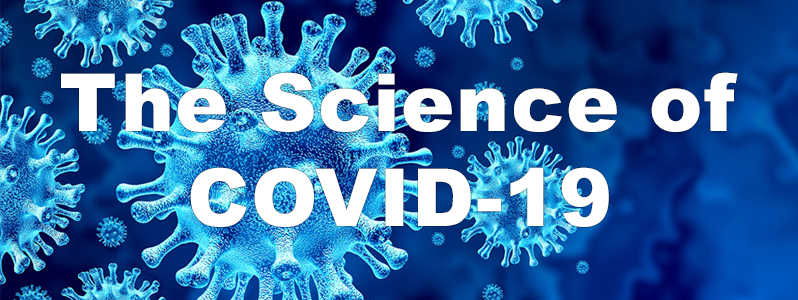AS mentioned in last week’s article, and by way of introduction again, COVID-19 predominantly affects individuals between 30 and 79 years of age, with 81 percent of cases being classified as mild.
Some patients with COVID-19 have displayed kidney damage through acute kidney injury (AKI), mild proteinuria (protein in the urine), hematuria (blood in the urine), or slight elevation in creatinine (blood marker testing for kidney function), possibly as consequence of kidney tropism of the virus and multiorgan failure.
The impact of COVID-19 on patients with pre-existing kidney impairment, including those with chronic kidney disease (CKD), kidney transplant recipients, and individuals on hemodialysis (HD) has not yet been clearly established.
Renal (kidney) involvement in COVID-19 (coronavirus-nephropathy) has a complex etiology (causes). AKI in COVID-19 is strongly associated with higher mortality and morbidity and is an indicator for survival with coronavirus infection.
According to a prospective cohort study, 44 percent of COVID-19 patients had proteinuria and 27 percent had hematuria at hospital admission, while five percent of patients experienced AKI during in-hospital. Patients with kidney disease had a significantly higher risk of death.
Causes
Most cases of AKI are caused by reduced blood flow to the kidneys, usually in someone who’s already unwell with another health condition.
This reduced blood flow could be caused by low blood volume after bleeding, excessive vomiting or diarrhoea, or severe dehydration; the heart pumping out less blood than normal as a result of heart failure, liver failure, or sepsis; problems with the blood vessels — such as inflammation and blockage in the blood vessels within the kidneys (a rare condition called vasculitis); or certain medicines that can affect the blood supply to the kidney — other medicines may cause unusual reactions in the kidney itself.
AKI can also be caused by a problem with the kidney itself, such as glomerulonephritis. This may be caused by a reaction to some drugs, infections, or the liquid dye used in some types of X-rays or CT scans.
It may also be the result of a blockage affecting the drainage of the kidneys, such as an enlarged prostate; a tumour in the pelvis, such as an ovarian or bladder tumour; or kidney stones.
A doctor may suspect AKI if you’re in an “at risk” group and suddenly fall ill or get symptoms of AKI, which is usually diagnosed with a blood test to measure your levels of creatinine, a chemical waste product produced by the muscles.
If there’s a lot of creatinine in your blood, it means your kidneys are not working as well as they should. You may also be asked to give a urine sample and an ultrasound scan of your kidneys may be done to look for any blockages.
Urine can be tested for protein, blood cells, sugar and waste products, which may give clues to the underlying cause. Doctors also need to know about any other symptoms, such as signs of sepsis or signs of heart failure, any other medical conditions, or any medication that’s been taken in the past week, as some medicines can cause AKI.
An ultrasound scan should reveal if the cause is a blockage in the urinary system, such as an enlarged prostate or bladder tumour.
Treatment
Treatment of AKI depends on what’s causing your illness and how severe it is.
You may need to increase your intake of water and other fluids if you’re dehydrated, use antibiotics if you have an infection, stop taking certain medicines (at least until the problem is sorted), or undergo a procedure with a urinary catheter — a thin tube used to drain the bladder if there’s a blockage.
Most people with AKI make a full recovery, but some people go on to develop chronic kidney disease or long-term kidney failure as a result.
In severe cases, dialysis, where a machine filters the blood to rid the body of harmful waste, extra salt and water, may be needed.
Prevention
Those at risk of AKI should be monitored with regular blood tests if they become unwell or start new medication. It’s also useful to check how much urine you’re passing.
Any warning signs of AKI, such as vomiting or producing little urine, require immediate investigation for AKI and treatment. People who are dehydrated, or at risk of dehydration, may need to be given fluids through a drip.
Any medicine that seems to be making the problem worse or directly damaging the kidneys needs to be stopped, at least temporarily.
The most serious complications of acute kidney injury are high levels of potassium in the blood — in severe cases, this can lead to muscle weakness, paralysis and heart rhythm problems; fluid in the lungs (pulmonary oedema); and acidic blood (metabolic acidosis) — which can cause nausea, vomiting, drowsiness and breathlessness.
In next week’s article, we will move on to look at two other aspects of AKI, namely, proteinuria (protein in the urine) and hematuria (blood in the urine).
This article is submitted as part of the Ministry of Health’s COVID-19 public information and education programme. For questions, email ministersecretaryhealth@gmail.com.
>>>>>




.png)









